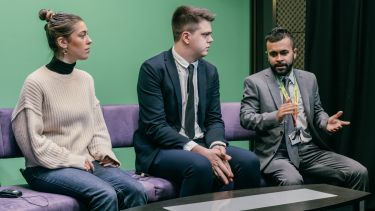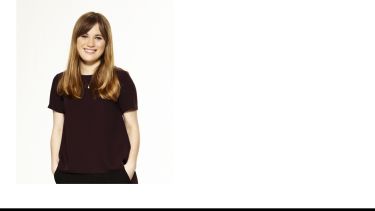Sheffield knocked the bad habits out of me, enhanced the good ones, and gave me the confidence to realise that it really was possible to succeed.

My current role is always changing. Day-to-day it’s a breakfast shift, so I usually start around 6am, file and report into the breakfast show and the breakfast bulletins, before usually spending the second half of my shift gathering content for the next day – or working on a future story or larger investigation. As Correspondent I’m usually tasked to pick up the biggest story of the day, whether that is political, about Covid, crime or something totally different. I’m also given the freedom to work on my own investigations and exclusives. To give some examples of my work, I was one of the first journalists to properly expose the cladding scandal in 2020, I have covered terror attacks, worked on undercover investigations about people smuggling and sex for rent landlords, and I was the first reporter out with Insulate Britain when they burst onto our roads last year.
I was offered some shifts at Global in Leeds while in my final months at Sheffield. That involved writing bulletins, story and audio gathering and was an amazing opportunity to learn how a commercial newsroom operates. Once in the company I also picked up shifts closer to my parents’ home in Birmingham. I spent the summer freelancing for Global Yorkshire and Midlands as well as BBC West Midlands, before getting a job with Global’s team in the East of England, based out of Milton Keynes. After a year of newsreading I moved into reporting – which was always what I preferred – and another year after that I got a job in London as a national reporter for LBC. I moved to be the breakfast reporter on the Nick Ferrari programme a few months later, and in 2019 I was promoted to Correspondent.
The MA was invaluable. I got into journalism via student radio, so I was passionate but totally untrained (and I’m sure not always in keeping with Ofcom!) Sheffield knocked the bad habits out of me, enhanced the good ones, and gave me the confidence to realise that it really was possible to succeed in a world that I would never have dreamed off a few years earlier.
The legal training, in particular, was phenomenal because those skills are crucial, and will stay that way throughout my career.
Rachael Venables
MA Broadcast
Highlights of the course include great friends, great teachers, and being able to actually do the job I had dreamed off for years. The course was brilliant because it fused the academic side of the job – law and ethics – with good old fashioned practical story getting. No experience is more important.
Two moments of teaching have lodged in my head to this day. The first is the image of David Holmes in a small lecture theatre, waving his notebook at the group around to demonstrate the importance of contact-keeping. Whenever I forget to save a name or number he pops into my head and reminds me to keep a note, and to keep in touch with them later. The protection and cultivation of sources is the most important skill of a reporter, and he taught us to really appreciate that. I can also remember the brilliant ‘writing for radio’ lessons from Lynn Dixon. I still tell others to just “write like you’re speaking to your friends in the pub.” She taught us me to be confident broadcasting with my own voice, my normal language, in a way that is accessible and gripping to the audience.

Our outstanding reputation for journalism
We're ranked as one of the top 5 universities to study journalism in the Guardian and the Complete University Guide - we're also 1st in the Russell Group for learning resources, student voice and learning opportunities according to the National Student Survey.

International postgraduate taught scholarships
We offer a generous package of financial support for international postgraduate taught students, including scholarships worth £10,000 towards the original tuition fee.
Applications are open for existing offer holders for a postgraduate taught programme starting in September 2025.

